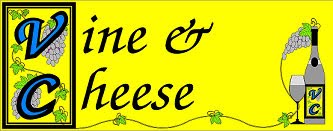One thing that I enjoy about blogging is how one subject leads to another naturally so I can begin by talking about our tasting of Blackstock wines last night and then move on to a discussion of "amelioration" and end up with a teaser about Verdicchio. Oh yes I can, watch me. Let's get started.
The Blackstock wines we tasted here last night were a real eyeopener for this jaded observer. There were three reds, a rose, and the Blackstock flagship white, Viognier. All were from drought year (2006-2008) vintages, elevating quality expectations perhaps unfairly, except I had tasted them a week earlier and knew their quality. Here is what I learned though...over the course of two hours, the reds continued to either hold their own or improve. The least of them, Rocking Chair Red (Merlot) really tasted great at closing time!
The best wines on the table were the three reds, Cabernet Sauvignon, Rocking Chair, and the Ace proprietary blend, and the Viognier. The rose was good but overshadowed. I thought the Cabernet was great but it sold the poorest while the Ace was our clear sales winner, doubling sales of the second bestseller. Rocking Chair, Sangiovese Rose, and Viognier all sold well.
While conversing with David Harris, he alluded to a scandal in California involving grape growers and large corporate wineries. As we have said before (July 14th blog) the popular style for many wines involves leaving the grapes on the vine until the grapes are overly ripe, making the wine coorespondingly sweeter and higher in alcohol. As the grapes shrivel and water evaporates from within, the weight of the berries decreases. Since grape growers are paid by the tonnage of the produce, they lose in such a situation.
Federal law mandates that wine grapes must be harvested at 23 brix as normative for the production of most table wines. The dilemna would seem to be that the popular style of wine for the times conflicts with the way the law has been written to protect the growers except for the introduction of "amelioration" into the process. Amelioration is the adding of water (or liquid sugar) before, during, or after fermentation. So in effect, what the wineries were doing to take advantage of the growers, was to dry the grapes on the vines before harvesting, then weighing the shrunken product, followed by reconstituting them in the winery. Voila! Profit!
Speaking of long hangtime grapes our most popular $15 white wine, Marchetti Verdicchio Castelli di Jesi Classico, has just begun offering a late harvest version. I tasted it this week and it is amazing. While most late harvest wines are sweet, this one has been fermented dry, leaving it layers of intense flavors from the dried fruit. The wine will be here in a week or two and pricing will be minimally $20. More on this one to come obviously.
Look, I am really high on Blackstock. Stop in this week, cite the blog, and get 10% off on any Blackstock wine purchase. And by the way, I told you I could do it.
Saturday, August 13, 2011
Subscribe to:
Post Comments (Atom)




No comments:
Post a Comment